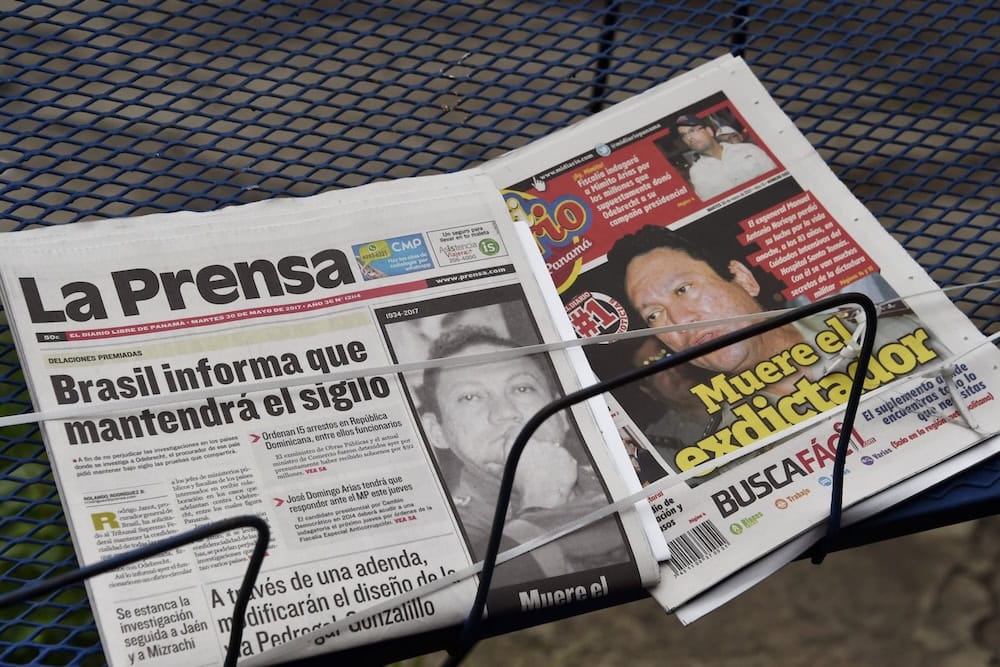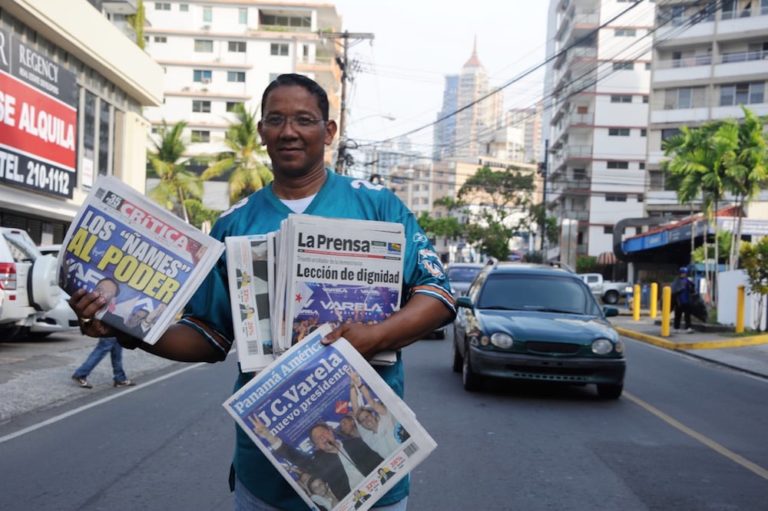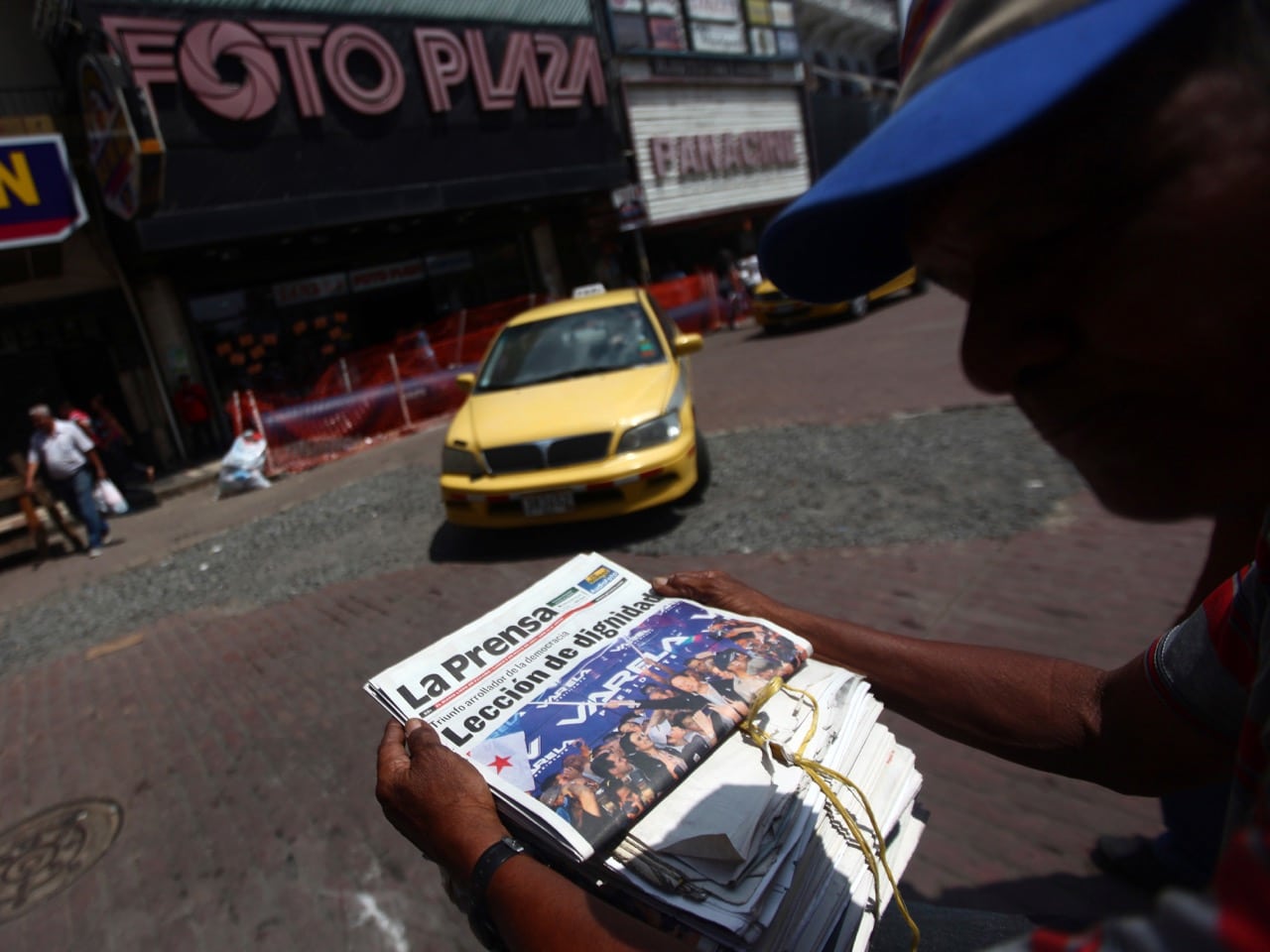The numerous lawsuits facing La Prensa Corporation in Panama could suffocate the viability of that media company, resulting in a negative impact on freedom of expression in the country.
This statement was originally published on en.sipiapa.org on 6 August 2024.
The company currently faces 15 civil lawsuits and 5 criminal lawsuits from former officials, former state contractors, deputies and other public figures.
The Inter American Press Association (IAPA) expressed alarm today that the eventual culmination of any of the numerous lawsuits facing La Prensa Corporation in Panama could suffocate the viability of that media company, resulting in a negative impact on freedom of expression in the country.
Annette Planells, president of the board of directors of La Prensa Corporation, told the IAPA that the company currently faces 15 civil lawsuits and 5 criminal lawsuits from former officials, former state contractors, deputies and other public figures, including former head of state Ernesto Pérez Balladares and the wife of former president Ricardo Martinelli, totaling over 60 million dollars in fines and compensation.
At the end of November, a court overturned the ruling in favor of La Prensa Corporation (Corprensa) in a civil lawsuit for alleged damages of $5.5 million filed by former president Pérez Balladares in 2012, as recorded by the IAPA in its mid-year report in April.
The court ordered Corprensa to pay $5,000 in moral damages. The first-instance ruling had been deemed an important precedent for press freedom due to the application of the actual malice standard to exonerate the media. The case is currently under appeal before the Supreme Court.
Roberto Rock, president of the IAPA, considered it “worrisome that an independent media outlet could see its future compromised by a deluge of legal actions related to its journalistic work.” Rock, director of the Mexican digital portal La Silla Rota, stated that “judicial harassment fosters a culture of self-censorship that, in addition to affecting journalistic work, injures the public’s right to information and hinders citizen oversight of power, which is vital in a democracy.”
Carlos Jornet, president of the IAPA’s Committee on Freedom of Press and Information, emphasized that Panama should “adapt its legislation according to international standards so that public figures, including officials or political leaders, refrain from initiating exorbitant and cumulative lawsuits aimed at financially suffocating the media.” Jornet, editorial director of the Argentine newspaper La Voz del Interior, urged Congressional leaders to work on a reform that “prevents so-called Strategic Lawsuits Against Public Participation (SLAPP) and stops powerful public figures from abusing the judicial system to silence dissenters.”
Former president Pérez Balladares (1994 – 1999) sued La Prensa for defamation after he believed he was slandered and discredited in articles published in March 2011, where the newspaper reported, as did other media outlets, judicial instances that indicated his alleged involvement in a money laundering case, as documented by the IAPA.
The IAPA had previously warned about the laxity of justice in Panama, where legislation allows a plaintiff to request the freezing of a media outlet’s assets during the course of a legal process, even without a judgment, intentionally resorting to exorbitant claims that generate extremely high costs to cover legal expenses, even if the case ends up being dismissed.
The IAPA has influenced numerous countries to ensure that lawsuits against media and journalists filed by public figures seeking to restore their honor or reputation are resolved in civil, not criminal, courts, and that there is proportionality in the claim and the eventual compensation determined by judges.



